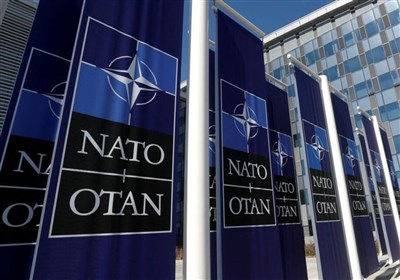Determining Stoltenberg’s successor is a challenge for NATO

| In an article, a western publication addressed the issue of appointing a successor to Stoltenberg as a challenge for this military alliance and, pointing to the rise of disputes in this regard, announced the formation of ideas for the continuation of Stoltenberg's responsibility in this position for another term. |
But the competition of candidates is still an open issue. Recently, the President of Romania, Klaus Iohannis, openly announced his candidacy for this position against Dutchman Mark Rutte. The United States, Germany, France and Britain have already announced that Rutte is their preferred candidate. Biden declared in February that the 57-year-old would be an “excellent” candidate. Chancellor Olaf Schulz said: “Mark Rutte is an outstanding candidate with his vast experience, high expertise in security policy and strong diplomatic skills.”
The four major NATO countries wanted to put pressure on all allies with their unusual statement. to finally commit to this proposed candidate with the necessary consensus. Now in Brussels it is said that the resistance against Rutte was underestimated. Meanwhile, Hungary is at the forefront of the opposition with the candidacy of this conservative Dutch liberal. Hungarian Prime Minister Viktor Orbán has not forgotten that Rutte has repeatedly criticized the lack of rule of law in Hungary at the EU level. Diplomats say Budapest’s veto still stands.
The US president recently accused Hungary of trying to establish a “dictatorship” in a rather diplomatic way. Budapest then accused Biden of “lying” and summoned the US ambassador. Orban also appeared with his “good friend” Donald Trump in Florida; He is supporting the former president in the US election campaign.
Romania, of course, has repeatedly announced through diplomatic channels in NATO that it is a good candidate for NATO with its 64-year-old president. There is a reason that he speaks English and German perfectly. The fact that Iohannis is now making his candidacy public, against Biden’s stated wishes, reflects a broader discontent in Eastern Europe. These countries of the former Soviet Union, which have gradually joined the region since 1999, have gained a lot of position and confidence as a result of the war in Ukraine. However, they have never appointed a NATO Secretary General.
Latvian Foreign Minister Kristianis Karins has also applied for the post. From the point of view of Western countries, the argument against both candidates is that they are too involved in conflicts with Russia. The Russian war has also elevated the position of the NATO Secretary General. The official is now the “face” of the coalition and is supposed to speak for all member states.
The post is also in demand more than ever as a mediator – such as Stoltenberg in the annexation dispute between Sweden and Turkey. Therefore, this saga over the successor can reach a well-known and valuable figure for NATO, and that is Stoltenberg himself. He has been in this position for ten years, one more year to be asked to take charge of it. As soon as the war in Ukraine broke out, Stoltenberg agreed to continue in this position and gave up the prestigious post of Governor of the Norwegian Central Bank. This time, Biden will have to use all his powers of persuasion to win back the 64-year-old’s opinion. Stoltenberg’s term as president usually ends in early October.
end of message/
| © | Webangah News Hub has translated this news from the source of Tasnim News Agency |


